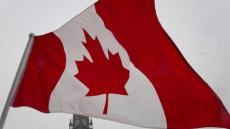OTTAWA - Canadians who identify as visible minorities do not have the same access to investments and other sources of wealth as non-racialized people, suggests a new report on income inequality that looks at the financial impact of racism beyond jobs and wages.
"Employment income is the sole or main source of income for most Canadians, and labour market policies play a major role in improving or worsening income inequality," says a newly published report by the Canadian Centre for Policy Alternatives, which looks at income inequality along racial lines.
"But labour markets are part of a broader political-economic context, where past and current policies have favoured some population groups over others," says the report. "This history of wealth accumulation for some but not others is a crucial contributor to racialized economic inequality today."
There is little Canadian data when it comes to examining wealth according to race, but Statistics Canada did include some details on income linked to net wealth — specifically, capital gains and income from investments — broken down by visible minority status in the 2016 Census.
The analysis in the report suggests a discrepancy between racialized Canadians, which is how the co-authors refer to those who identified in the 2016 Census as visible minorities, and non-racialized, or white, Canadians. The data on visible minorities does not include Indigenous Peoples.
Eight per cent of racialized Canadians over the age of 15 reported some capital gains in 2015, compared to about 12 per cent of non-racialized people. There was also a gap in the amounts, with racialized Canadians receiving, on average, $10,828 — 29 per cent below the average for white Canadians.
There was also gap when it came to money received through investments, such as rental income from real estate holdings or dividends from stocks.
The analysis shows about 25 per cent of racialized people earned income from investments in 2015, while nearly 31 per cent of non-racialized Canadians received money through investments that year. The average amount earned was $7,774 for racialized people, and $11,428 for white people.
Sheila Block, a senior economist at the Canadian Centre for Policy Alternatives who co-authored the report, said looking at disparities in wealth, in addition to aspects of the labour market, sheds a new and multifaceted light on the issue of income inequality in Canada.
"When we broaden the lens to look at wealth, rather than just looking at income, it can give us a bigger picture of what the cumulative impact of racism is, both over an individual's lifespan, but also potentially from one generation to the next," said Block.
She wrote the report with Grace-Edward Galabuzi, an associate professor of politics and public administration at Ryerson University, and Ricardo Tranjan, a political economist at the Canadian Centre for Policy Alternatives.
Block said the data available in the United States shows the racialized gap when it comes to wealth is even greater than it is for income.
She hopes that Statistics Canada will consider including a question about visible minority status on its regular survey of financial security, which collects information from Canadians on the value of their assets and the money they owe on everything from mortgages to credit cards.
She said better data could lead to more equitable and effective anti-racism policies.
One interesting finding was that racialized men have a higher employment rate than non-racialized men.
A closer look at these numbers suggests this is age-related, as the employment rate for racialized men between the ages of 55 and 64 was 5.9 percentage points higher than for non-racialized men at that age. Below the age of 55, non-racialized men had higher employment rates.
"This higher employment rate for older racialized men may reflect less access to pension income and lower lifetime earnings, i.e., many in this group may not be able to afford to retire," says the report.
The report also examines the gender gap, concluding that race plays an important role in income inequality between men and women too.
According to the report, which used figures from the 2016 Census, racialized women earn 59 cents for every dollar earned by non-racialized men. Racialized men, meanwhile, earn 78 cents for every dollar earned by their white male counterparts. The gap was narrowest, but not closed, between women, with racialized women earning 87 cents for every dollar earned by white women.
"I think it's important that we look at the gender wage gaps, rather than the singular gender wage gap," Block said.

